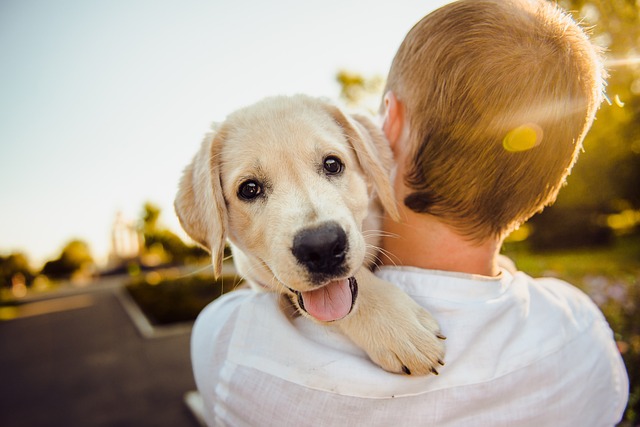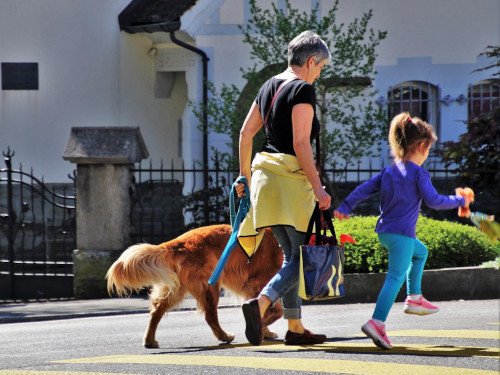Relationship-Based Dog Training is a philosophy we at Bar W Dog Training embrace with our whole hearts. This approach to dog training transcends traditional training methods, focusing on nurturing a positive and cooperative relationship between you and your beloved canine. It’s a journey that can take you beyond obedience, to a place of trust, understanding, and mutual respect.
In this guide, we’ll delve into the nuances of this approach, sharing our expertise and insights to help you and your dog embark on this rewarding path together. Let’s explore how relationship-based training can transform your interactions with your furry friend into a harmonious and enriching experience.
- 1. The Essence of Positive Reinforcement
- 2. Mastering Communication
- 3. Bonding and Trust: The Heart of Training
- 4. Understanding Your Dog’s Unique Perspective
- 5. The Role of Patience and Empathy in Training
- 6. The Importance of Avoiding Unfair Punishment
- 7. Consistency: A Pillar of Effective Training
- 8. Making Training Enjoyable for Both You and Your Dog

1. The Essence of Positive Reinforcement
Positive reinforcement lies at the core of our training philosophy. This method is about rewarding desirable behaviors with praise, affection, treats, toys, or any form of positive acknowledgment. It’s a celebration of good behavior, creating a strong association between obedience and happiness in your dog’s mind.
Imagine a training session where your dog’s eyes sparkle with anticipation and eagerness, not fear or uncertainty. This approach fosters an environment where your dog is excited to learn and participate, understanding that good behavior leads to delightful rewards. It’s not just about the treats; it’s about reinforcing a positive, enthusiastic attitude towards learning and following commands.
2. Mastering Communication
Effective communication is the bedrock of any strong relationship, and it’s no different in the world of dog training. We emphasize the importance of clear, consistent cues and commands. It’s about establishing a language that both you and your dog understand and respond to.
However, communication is not just about you talking to your dog; it’s also about listening to them. Understanding your dog’s body language, their signals, and expressions are crucial. This two-way communication builds a deeper understanding and connection, making training sessions more than just instruction—they become a dialogue.
3. Bonding and Trust: The Heart of Training
At Bar W Dog Training, we believe the essence of training lies in the bond you share with your dog. It’s about building a relationship rooted in trust and mutual respect. When your dog trusts you, they are more receptive to learning and eager to please. This trust is what transforms simple commands into a deeper connection.
We guide you in developing this bond, showing you how to become a source of safety, comfort, and joy for your dog. This bond is what ensures that your dog responds to you, not out of fear or submission, but out of love and trust.

4. Understanding Your Dog’s Unique Perspective
Every dog is an individual, with their own personality, instincts, and temperament. Our training methods are not one-size-fits-all; they are as unique as your dog. By understanding your dog’s perspective, we can tailor our training techniques to suit their individual needs.
This means considering their natural behaviors and instincts, as well as their specific emotional and physical needs. It’s about training your dog in a way that respects and embraces their true nature, allowing them to be the best version of themselves.
5. The Role of Patience and Empathy in Training
Patience and empathy are virtues we hold in high regard. We understand that training is a process, one that requires time, patience, and understanding. Dogs, like humans, learn at their own pace. It’s important to be patient and empathetic towards your dog’s learning curve.
Recognizing and celebrating small milestones is key. We encourage you to view training as a journey of growth and discovery, where each step forward, no matter how small, is a cause for celebration. Progress is not always linear, but it is always moving forward. This empathetic approach ensures that your dog feels supported and understood throughout their training journey.
6. The Importance of Avoiding Unfair Punishment
While correction is a part of training, we advise against unfair punishments. Our focus is on strengthening your bond with your dog, not instilling fear. Corrections, when necessary, are tailored to each situation and aimed at guiding your dog rather than punishing them. When applied effectively, your dog learns that you are a balanced leader, and capable of making the best decisions for them!
This approach ensures that your dog understands your expectations without feeling threatened or distressed. It’s about guiding them towards the right behavior in a way that maintains their trust and confidence in you.
7. Consistency: A Pillar of Effective Training
Consistency is vital in relationship-based dog training. We help you establish and maintain consistent training methods, cues, and expectations. This consistency provides your dog with a sense of structure and security, helping them understand what is expected of them.
Consistent training reinforces learning and ensures that your dog can reliably respond to your commands. It’s about creating a stable, predictable environment where your dog can thrive and learn effectively.
8. Making Training Enjoyable for Both You and Your Dog
We believe that training should be an enjoyable experience for both you and your dog. Our training sessions are designed to be fun, engaging, and rewarding. By making training enjoyable, we strengthen the bond between you and your dog, turning learning into a delightful shared experience.
Fun and engaging activities not only make training more effective but also deepen the connection you share with your dog. It’s about creating positive experiences that you both look forward to, making training something more than just a routine—it becomes a highlight of your day.
Relationship-Based Dog Training is not about permissiveness or lack of discipline; it’s about fostering a bond based on communication, mutual respect, and understanding. It’s a holistic approach that not only trains your dog but also enhances the way you relate to and understand them. At Bar W Dog Training, we are committed to this approach because we have seen its incredible impact. Dogs trained with love, respect, and understanding develop into well-behaved, happy, and confident companions. Join us on this transformative journey. Together, we can nurture a training environment where every dog is not just obedient but also understood, respected, and deeply loved for who they are. Let’s build a world where our canine friends are trained with the heart, creating bonds that last a lifetime.





